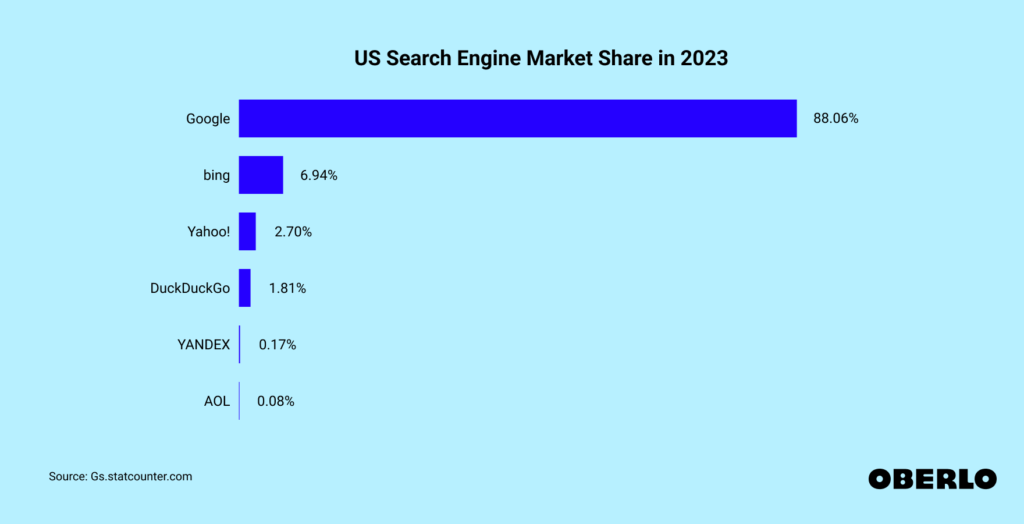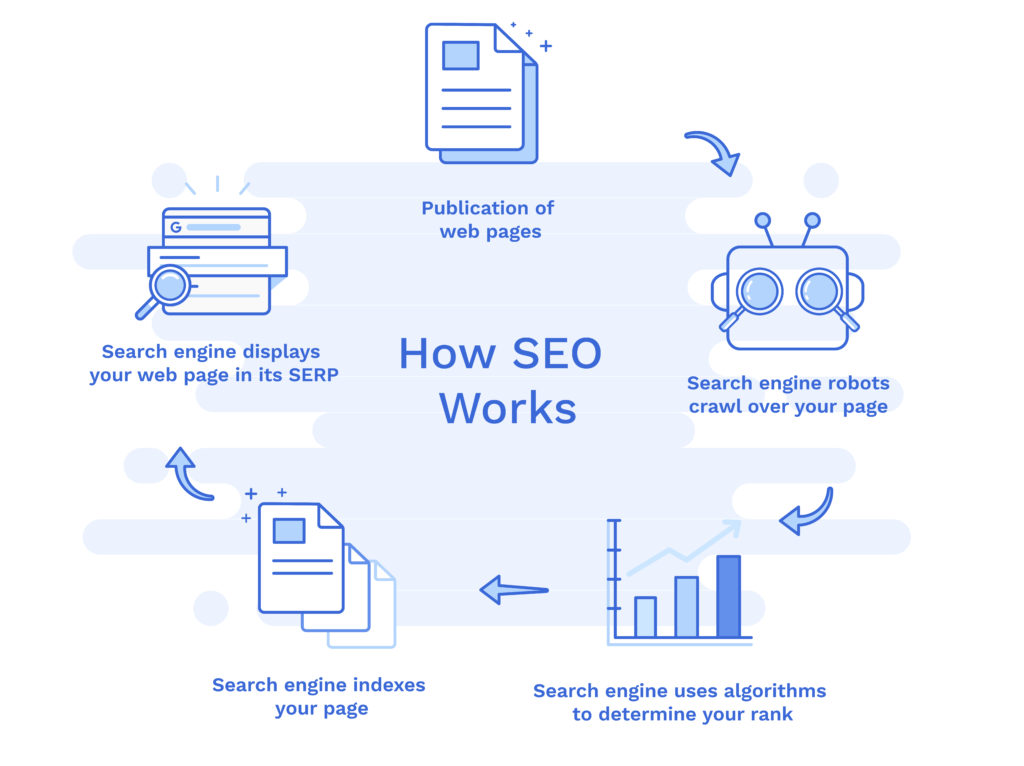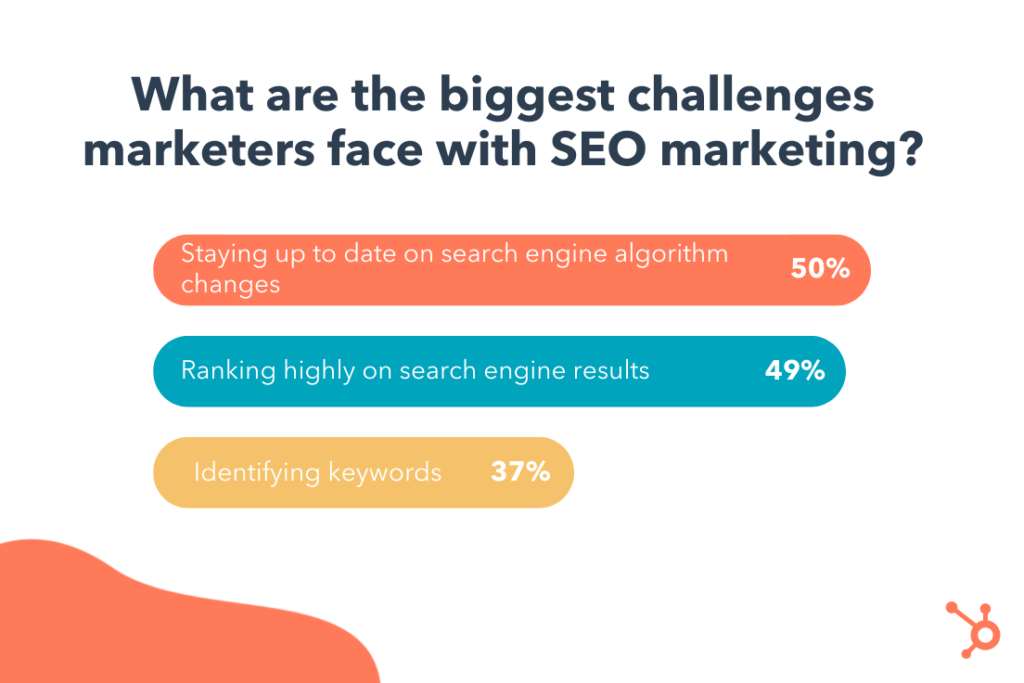Beyond Google: Exploring Alternative Search Engines for SEO
Right now, there’s an urgent, and increasing hunt underway, for alternative search engines for SEO. And the reason for this new trend is pretty simple. Website owners are beginning to question the smartness of relying too much on Google as a search engine. Particularly, when owners’ focus is on increasing their website’s visibility online.
According to recent statistics, Google processes over 3.5 billion searches per day, showcasing its undisputed popularity. And it accounts for over 90% of the global market share.
However, as digital landscapes evolve, savvy SEO practitioners are realizing the need to diversify their approach.
Hence, exploring alternative search engines for SEO is emerging as a key strategy for those aiming not only to reach a wider audience but also to future-proof their online presence.
In this article, we delve into the realm “beyond Google,” unlocking the potential of alternative search engines for SEO and understanding why their inclusion is vital for a well-rounded SEO strategy.
1. Overview of Alternative Search Engines
As you venture into the topic of “Beyond Google, “it is essential to familiarize yourself with various alternative search engines. Let’s delve into a brief overview of some notable players in this arena:
- Bing: Microsoft’s Bing has steadily gained traction, holding a significant share of the search market. Known for its visually appealing homepage and video integration, Bing emphasizes a visually rich search experience. Understanding Bing’s ranking factors is key to optimizing for this alternative.
- Yahoo: Once a search giant in its own right, Yahoo still commands a notable user base. Powered by Bing’s search technology since 2009, Yahoo has maintained its distinct identity. Exploring its unique features and understanding its user demographics can unlock opportunities for targeted outreach.
- DuckDuckGo: Privacy-centric DuckDuckGo has seen a surge in popularity as users become more conscious of their online footprint. Emphasizing user privacy and avoiding personalized search results, DuckDuckGo presents a different paradigm. SEO strategies here revolve around respecting user privacy while delivering relevant content.
- Yandex: Stepping onto the global stage from Russia, Yandex is the go-to search engine for many Russian-speaking users. Understanding its language nuances and regional preferences is vital for anyone eyeing the vast Russian and Eastern European markets.

These alternative search engines cater to diverse user preferences, and optimizing for each requires a nuanced approach. Join us as we navigate the unique landscapes of Bing, Yahoo, DuckDuckGo, and Yandex, uncovering the potential they hold for your SEO endeavors.
2. Comparative Analysis
In the ever-evolving realm of search engine optimization (SEO), understanding the nuances of alternative search engines is crucial for a holistic strategy. Let’s embark on a comparative analysis, dissecting the ranking factors, algorithms, and unique features of key players beyond Google.
A. Bing
- Ranking Factors:
- Bing places a significant emphasis on social media signals, making social media presence crucial for ranking.
- Page load time and mobile optimization are vital factors, aligning with the growing importance of the user experience.
- Unique Features for SEO:
- Rich media integration in search results, including video previews and image carousels.
- The “Snapshot” feature offers additional information about entities directly in search results.
B. Yahoo
- Ranking Factors:
- Yahoo largely relies on Bing’s search technology, emphasizing factors like keyword relevance and domain authority.
- User engagement metrics, such as click-through rates, play a pivotal role in Yahoo’s ranking algorithm.
- Unique Features for SEO:
- A dedicated Yahoo Search Index with its own set of algorithms.
- Opportunities for exposure on Yahoo’s homepage and other Yahoo-owned platforms.
C. DuckDuckGo:
- Ranking Factors:
- DuckDuckGo’s commitment to user privacy means it doesn’t track user behavior, making personalization a minimal factor.
- Emphasis on content quality, relevance, and backlink authority.
- Unique Features for SEO:
- Zero-click search results, offer immediate information without the need to click through.
- Strict privacy policies attract users concerned about data tracking.
D. Yandex:
- Ranking Factors:
- Yandex prioritizes content in the local language and considers regional user behavior.
- Behavioral factors, including click-through rates and user engagement, heavily influence rankings.
- Unique Features for SEO:
- Yandex. Webmaster tools provide insights tailored to the Russian and Eastern European markets.
- Image and video search capabilities are finely tuned for regional preferences.
Comparative Analysis of Alternative Search Engines
| Search Engine | Ranking Factors | Unique Features for SEO |
|---|---|---|
| Bing | – Social media signals | – Rich media integration in search results |
| – Page load time and mobile optimization | – “Snapshot” feature for additional entity information in search results | |
| Yahoo | – Keyword relevance and domain authority | – Dedicated Yahoo Search Index with unique algorithms |
| – User engagement metrics | – Exposure opportunities on Yahoo-owned platforms | |
| DuckDuckGo | – User privacy | – Zero-click search results |
| – Content quality, relevance, and backlink authority | – Strict privacy policies | |
| Yandex | – Local language content | – Yandex Webmaster tools for Russian and Eastern European markets |
| – Regional user behavior | – Tailored image and video search capabilities |

Key Takeaways:
- Diversifying SEO efforts involves understanding the unique preferences and algorithms of each search engine.
- Social signals, user engagement, and privacy considerations play varying roles in alternative search engines.
- Rich media integration and unique features present opportunities for creative SEO strategies.
Navigating the intricacies of these alternative search engines allows SEO practitioners to tailor their strategies, ensuring maximum visibility across diverse platforms.
In the upcoming section, we will explore the optimization strategies you will need for each search engine.
Read More: Creating Blog Content Without Keyword Research: Top 13 Methods
Leverage User Intent For Better SEO (And Rank Higher In SERPs)
3. Optimization Strategies For SEO: Alternative Search Engines
As we venture “Beyond Google,” optimizing content for alternative search engines requires a nuanced approach. Let’s delve into practical strategies tailored for Bing, Yahoo, DuckDuckGo, and Yandex, addressing specific ranking factors that set them apart from the Google landscape.
A. Optimize for Bing:
- Social Signals Matter: Leverage social media presence as Bing places a high emphasis on social signals. Active engagement and shares can positively impact rankings.
- Multimedia Integration: Capitalize on Bing’s love for rich media by including high-quality images and videos. Optimize file names and alt text to enhance visibility.
- Mobile Optimization: Ensure your website is mobile-friendly, as Bing considers mobile optimization a crucial ranking factor.
- According to Neil Patel, there are smart ways to optimize for Bing and easily rank on page 1.
B. Optimize for Yahoo:
- Keyword Relevance: Align your content with relevant keywords, as Yahoo relies on traditional SEO factors, emphasizing keyword relevance and domain authority.
- User Engagement: Encourage click-through rates and user engagement, factors Yahoo values for determining content quality.
- Leverage Yahoo-owned Platforms: Explore opportunities for exposure on Yahoo’s homepage and other platforms within the Yahoo ecosystem.
C. Optimize for DuckDuckGo:
- Focus on Privacy: Cater to users who prioritize privacy by creating content that respects user data. Highlight privacy features or practices within your content.
- High-Quality Content: Emphasize content quality and backlink authority, as DuckDuckGo aims to provide reliable information without personalization.
D. Optimize for Yandex:
- Localized Content: Tailor content to the local language and preferences, as Yandex prioritizes content in the user’s regional language.
- Behavioral Factors: Consider user behavior in your SEO strategy, as Yandex heavily factors in click-through rates and user engagement.
- Utilize Yandex.Webmaster Tools: Gain insights into your website’s performance in the Russian and Eastern European markets using Yandex.Webmaster tools.
E. Tips Across Alternative Search Engines:
- Diversify Anchor Text: Vary your anchor text strategy to align with each search engine’s preferences, ensuring a natural and diverse link profile.
- Optimize for Local Searches: Capitalize on local SEO strategies, as some alternative search engines prioritize localized content and businesses.
- Monitor Analytics: Regularly monitor analytics for each search engine to track performance and adjust strategies accordingly.
Learn more tips to help your ranking soar on the search engines with me.
By tailoring your optimization strategies to the unique features and ranking factors of each alternative search engine, you can maximize your reach and effectiveness.
While the benefits of using alternative search engines are many they are not without challenges. In the next section, we will explore these challenges and the solutions to overcome them.
4. Potential Challenges and Solutions
Optimizing for alternative search engines presents unique challenges that, when addressed strategically, can pave the way for enhanced visibility.
Let’s delve into potential hurdles and effective solutions to ensure your content thrives beyond the Google-centric landscape.
A. Challenge: Limited Search Volume:
- Solution: Diversify Content and Target Long-Tail Keywords:
- Create content tailored to the specific interests of your target audience on alternative search engines.
- Optimize for long-tail keywords to capture niche queries and attract a more engaged audience.
Explore how you can implement easy keyword techniques to improve your website SEO.
B. Challenge: Varied Ranking Factors:
- Solution: Tailor Strategies for Each Platform:
- Understand the distinct ranking factors of each search engine and adapt your SEO strategy accordingly.
- Leverage tools like Bing Webmaster Tools and Yandex Metrica to gain insights into platform-specific metrics.
C. Challenge: Limited Resources for Optimization:
- Solution: Prioritize High-Impact Tasks:
- Focus on optimizing high-traffic pages and key content for alternative search engines.
- Allocate resources based on potential impact, emphasizing areas where your target audience is most active.
D. Challenge: Privacy Concerns on DuckDuckGo:
- Solution: Highlight Privacy Features and Benefits:
- Emphasize your commitment to user privacy within your content.
- Communicate how your website aligns with DuckDuckGo’s privacy-focused approach.
E. Challenge: Language and Regional Differences on Yandex:
- Solution: Localize Content and Leverage Yandex.Webmaster:
- Translate content into the local language and tailor it to regional preferences.
- Use Yandex. Webmaster tools to gain insights into how your content is perceived in the Russian and Eastern European markets.
F. Challenge: Algorithm Changes and Volatility:
- Solution: Stay Informed and Diversify Traffic Sources:
- Regularly monitor updates from alternative search engines and adapt your strategy accordingly.
- Diversify your traffic sources beyond search engines to mitigate the impact of algorithm changes.

By proactively addressing these challenges, you can position your content for success on alternative search engines.
With that, let’s explore something interesting ; future trends in the search engine scenario.
5. Future Trends in the Search Engine Landscape
As we gaze into the future of the search engine landscape, several trends are poised to shape the way users discover and interact with online content.
Understanding these emerging patterns is essential for crafting a forward-looking SEO strategy.
Let’s explore the potential future trends and predict the evolving role of alternative search engines in the SEO landscape.
A. Advanced AI and Natural Language Processing:
- Trend: Search engines are increasingly leveraging advanced AI and natural language processing to understand user queries more contextually.
- Prediction: Alternative search engines will incorporate sophisticated AI algorithms, enhancing their ability to provide personalized and relevant search results.
According to AI Focus, Google is on the way to rolling out AI-powered search engine versions; Magi and Dreamix
B. Voice Search Dominance:
- Trend: The rise of voice-activated devices is driving an increase in voice searches.
- Prediction: Alternative search engines will focus on optimizing for voice search, with improved accuracy and contextual understanding.
Read More: The Rise of Voice Search: Optimizing Your Content for Voice Assistants
C. Privacy-Centric Search:
- Trend: Growing concerns about online privacy are leading users to seek more privacy-centric search options.
- Prediction: Alternative search engines with strong privacy features, like DuckDuckGo, will see increased adoption as privacy becomes a more significant consideration for users.
Read More: Data Privacy in Digital Marketing: Protecting Your Digital Privacy
D. Local and Hyperlocal Search:
- Trend: Users are placing greater emphasis on finding local and hyperlocal information.
- Prediction: Alternative search engines will refine their algorithms to deliver more accurate and relevant local search results, offering a competitive edge in localized content.
E. Augmented Reality (AR) Integration:
- Trend: The integration of AR in search experiences is becoming more prevalent.
- Prediction: Alternative search engines will explore AR integration to enhance the way users interact with search results, especially in sectors like e-commerce and education.
F. Video and Visual Search Growth:
- Trend: The popularity of video content and visual search is on the rise.
- Prediction: Alternative search engines will enhance their capabilities for video and visual search, providing users with more diverse ways to discover content.
Read More: Video Marketing in the Digital Age: Creating Engaging Content
The Future Role and Influence of Alternative Search Engines in SEO:
As these trends unfold, alternative search engines are poised to play an increasingly influential role in the SEO landscape. Here’s what we can anticipate:
- Diversification of SEO Strategies: SEO practitioners will recognize the importance of diversifying strategies to encompass the unique features and algorithms of alternative search engines.
- Niche Audience Targeting: Alternative search engines will attract niche audiences, and optimizing for these platforms will become a strategic imperative for reaching specific user segments.
- Increased Privacy Emphasis: Privacy-focused alternative search engines will gain prominence as users seek more secure and private online experiences.
- Adaptability to Emerging Technologies: Alternative search engines that successfully integrate emerging technologies, such as AI, voice search, and AR, will become leaders in providing cutting-edge search experiences.
- Competition and Collaboration: The competitive landscape will expand beyond Google, fostering both competition and collaboration among alternative search engines to deliver innovative solutions.
In navigating the future of SEO, being attuned to these emerging trends and recognizing the evolving role of alternative search engines will be key to staying ahead in the ever-changing digital landscape.
As you embrace the future, continue your journey “Beyond Google,” where new opportunities and challenges await.
FAQs
1. Which are the two most popular search engines on the internet?
Most people think of Google first. With over 81% of the search market share, it is the internet search industry heavyweight. Bing has about 10% of the global search market share, making it the second biggest search engine.
2. Can you recommend a trustworthy search engine?
The most secure search engine is DuckDuckGo. As an example of a private search engine that prioritizes user privacy, DuckDuckGo does not record any information about your search history or other personal details.
3. Which search engine is the fastest?
When it comes to minimal searching, no one does it better than Google, the most popular search engine in the world. In addition to having the largest single inventory of web pages, Google is quick and relevant.
4. What are the other best search engines besides Google, or those mentioned in the article here?
| Search Engine | Ranking Factors | Unique Features for SEO |
|---|---|---|
| Baidu | Prioritizes content in Chinese language, considers user behavior in China. | Baidu Webmaster Tools, tailored image and video search for Chinese users |
| Ask.com | Emphasizes question-based queries, user engagement metrics. | Opportunities for exposure in Ask.com’s Q&A format, focus on conversational search |
| Ecosia | Environmental impact, user engagement. | Planting trees with search revenue, eco-friendly branding attracting eco-conscious users |
| StartPage | Emphasizes question-based queries, and user engagement metrics. | Privacy-centric search results, anonymized user data protection |
| Yippy | Semantic search, user engagement. | Clustering technology for organizing search results, customizable search filters |
5. How does one go about creating a search engine?
The setting up of search engines essentially involves certain common steps:
Crawling and Indexing:
Create algorithms to crawl across the web, collect data, and organize web pages for later retrieval.
Ranking Algorithms:
Create ranking algorithms that take into account user activity, backlinks, and keywords to establish the reliability and importance of indexed pages.
User Interface:
Taking advantage of tools like autocomplete and filters to design a search interface that is easy to use and understand.
Infrastructure
Set up a solid infrastructure that can reliably store and process large amounts of data and manage high volumes of user requests.
Related Posts
Is the SEO Market Saturated?: Separating Truth from Internet Myths
The Rise of Voice Search: Optimizing Your Content for Voice Assistants
Is SEO A Technical Skill, And Is SEO Difficult To Learn?
Free Home-Based SEO Training Strategies For Bloggers
Conclusion
By incorporating alternative search engines into your SEO strategy, you not only mitigate risks associated with algorithm changes but also tap into valuable opportunities.
These opportunities could be hidden in the shadows of Google’s dominance.
That’s a big reason why I encourage you to embrace the diversity of the digital landscape.
Remember, the online world is dynamic, and success lies in adaptability.
As you navigate the complexity of search engine optimization, let the insights gained from exploring alternative search engines guide you toward a future-proof and resilient online presence.
It’s time to broaden your horizons, embrace new challenges, and reap the rewards that lie beyond the confines of Google’s search results.
Your journey into alternative search engines for SEO “Beyond Google” has just begun. Wish you the best of luck as you reach out to new heights in the evolving landscape of digital success.

